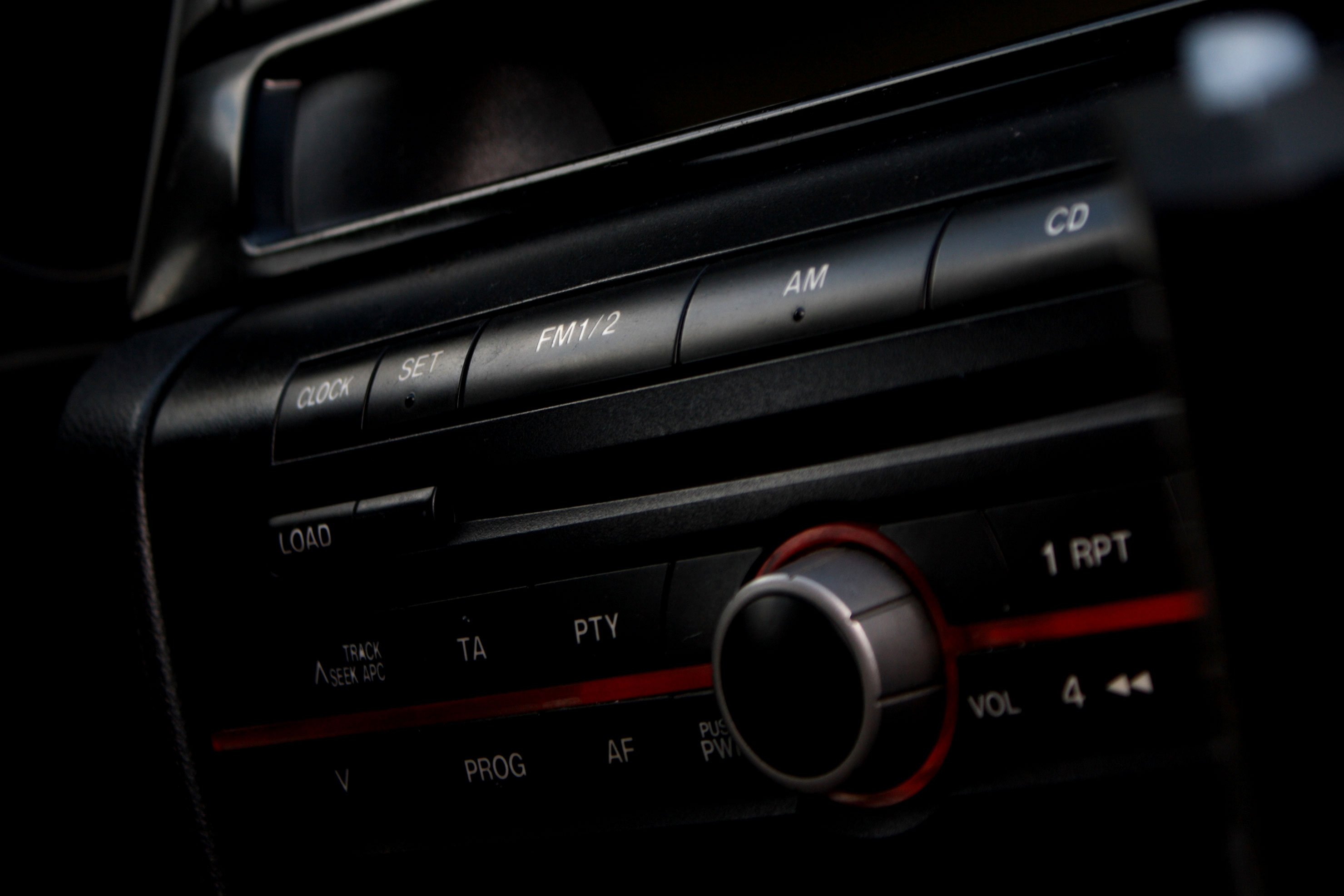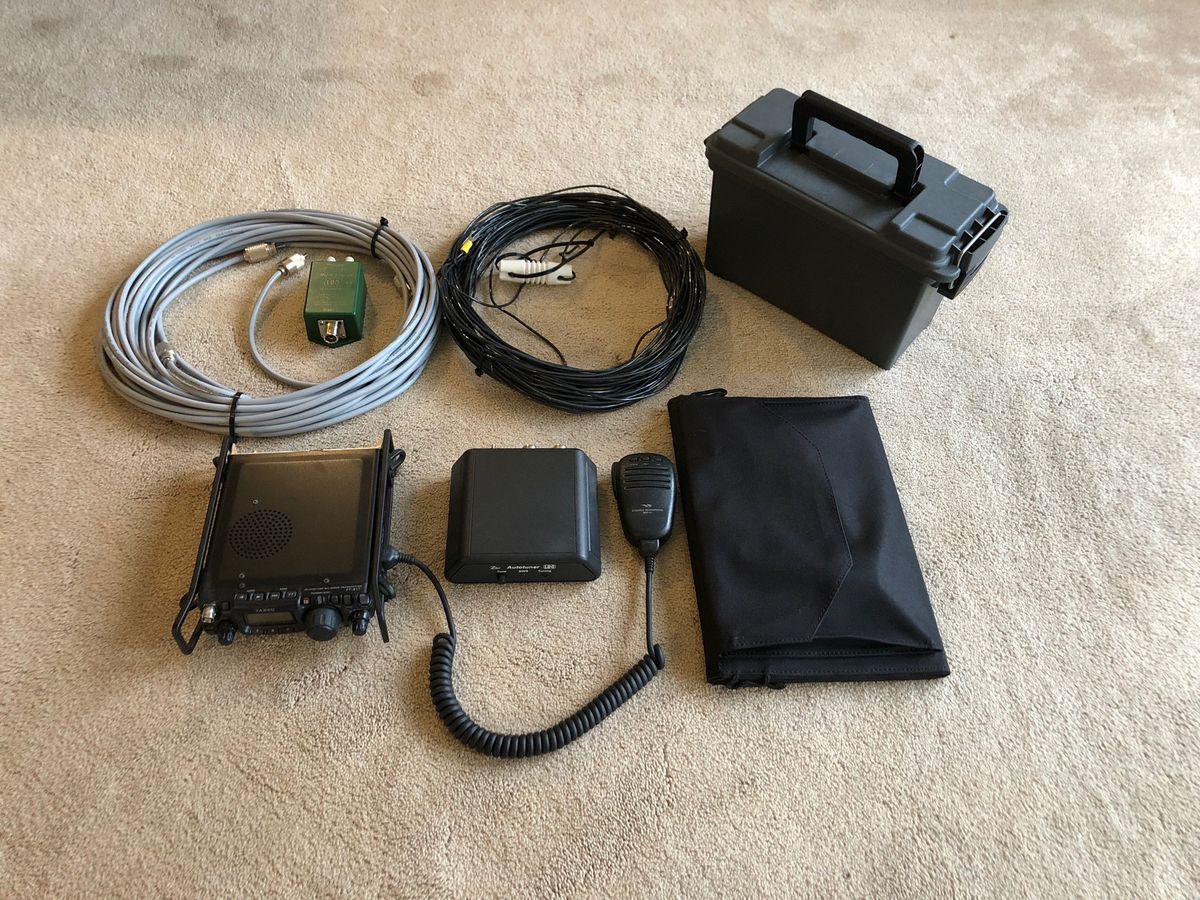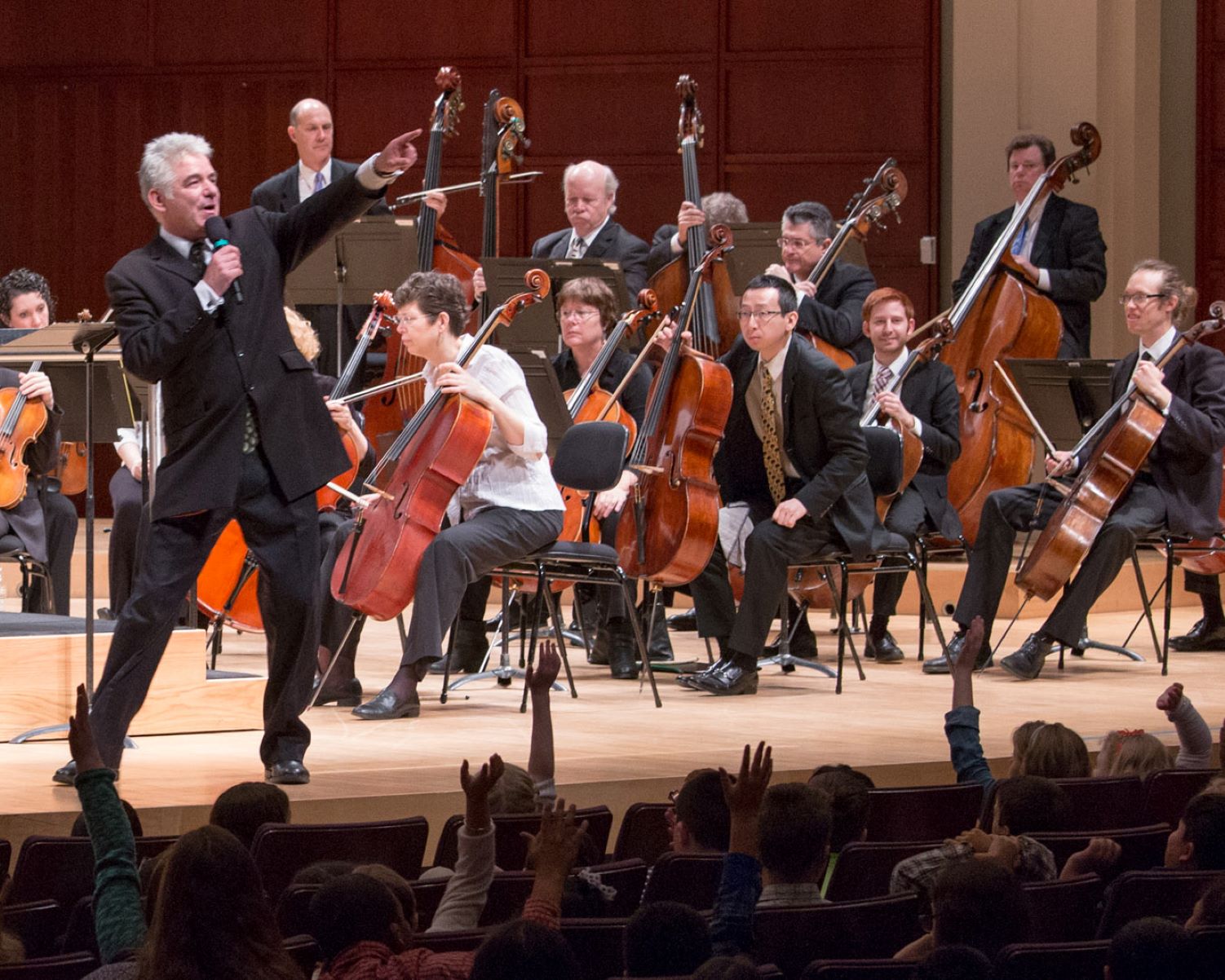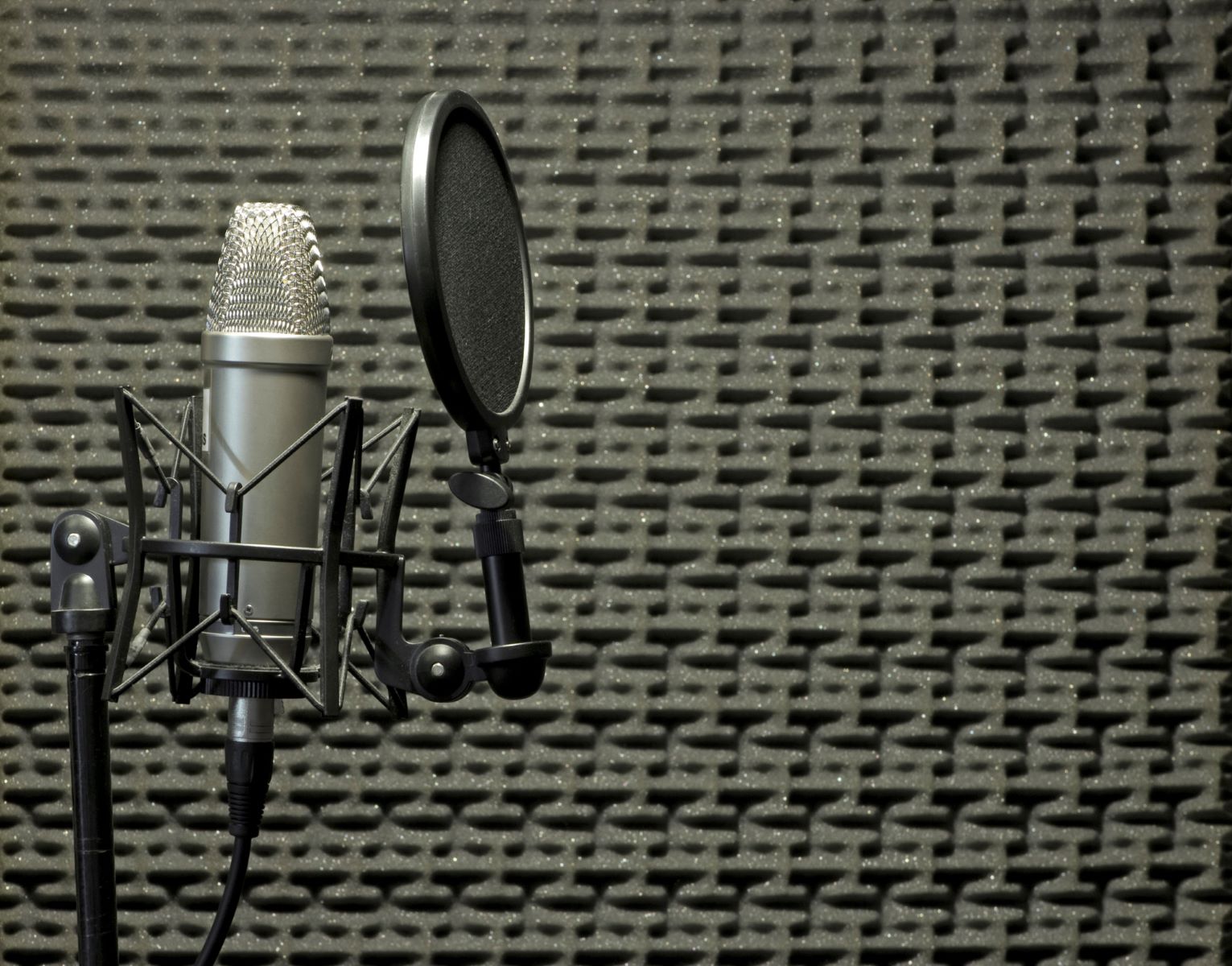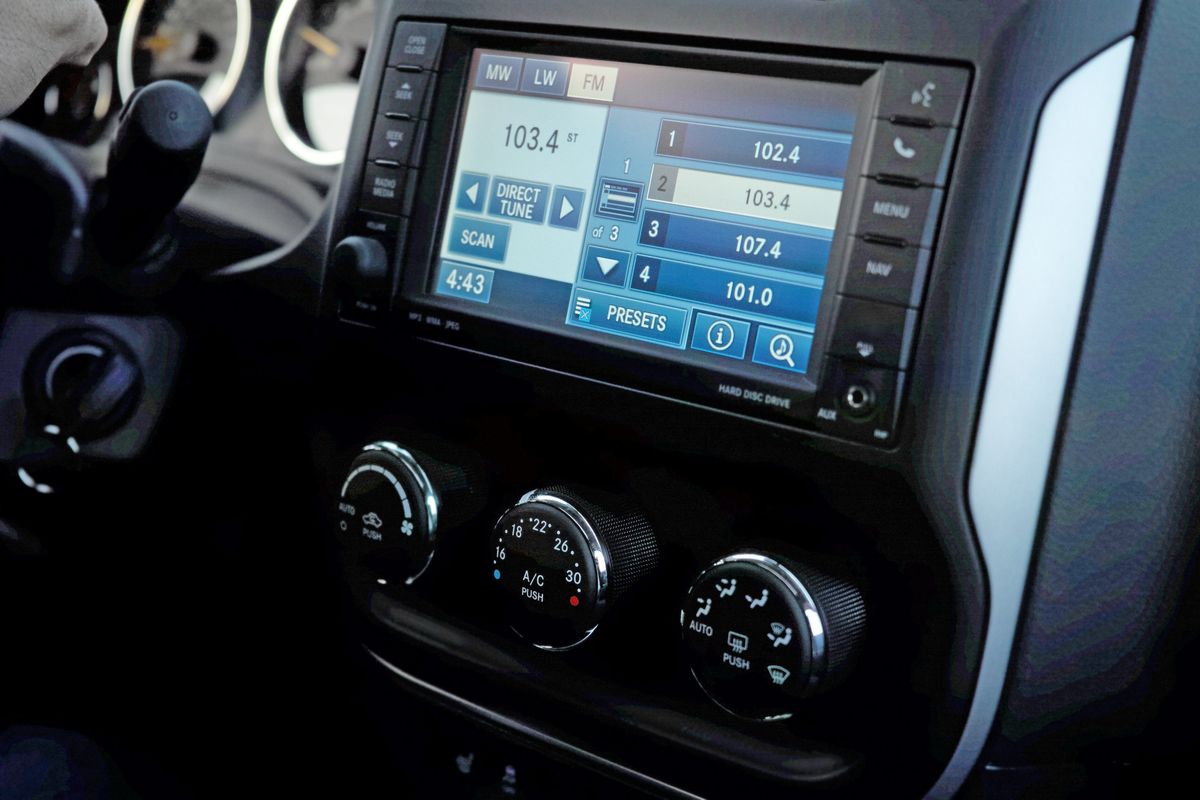Home>Devices & Equipment>Radio>How Much Do Radio DJs Make


Radio
How Much Do Radio DJs Make
Modified: January 22, 2024
Discover how much radio DJs make and explore the salary range in the radio industry. Uncover the earning potential in this exciting field
(Many of the links in this article redirect to a specific reviewed product. Your purchase of these products through affiliate links helps to generate commission for AudioLover.com, at no extra cost. Learn more)
Table of Contents
- Introduction
- Factors that Influence Radio DJs’ Salaries
- Compensation Structure in Radio DJ Industry
- Average Salary Range for Radio DJs
- Additional Income Sources for Radio DJs
- Salary Differences Based on Geographic Location
- Salary Differences Based on Experience Level
- Salary Differences Based on Radio Station Type
- Conclusion
Introduction
In the world of radio broadcasting, the voice behind the microphone holds a significant role in captivating audiences and shaping the overall listening experience. These talented individuals are known as Radio DJs, and they play a crucial part in the success of radio stations.
But have you ever wondered how much money these charismatic personalities make for their work? Many factors come into play when determining the salary of a Radio DJ, including their experience level, the geographic location of the radio station, and the type of radio station they work for.
In this article, we will explore the factors that influence the salaries of Radio DJs, delve into the compensation structure in the radio DJ industry, and provide insights into the average salary range for these professionals. We will also discuss additional income sources that Radio DJs can tap into to boost their earnings. Furthermore, we will examine how geographic location, experience level, and type of radio station impact a Radio DJ’s salary.
Whether you’re a budding Radio DJ looking to enter the field or simply curious about the financial side of the industry, this article will shed light on the earnings of Radio DJs and provide a comprehensive understanding of the factors influencing their salaries.
Factors that Influence Radio DJs’ Salaries
When it comes to determining the salary of a Radio DJ, several key factors come into play. Understanding these factors can provide valuable insights into the earning potential of a Radio DJ. Let’s explore the main factors that influence Radio DJs’ salaries:
- Market Size: The size of the radio market where a DJ works plays a significant role in determining their salary. DJs in major metropolitan areas or in markets with a large listener base often command higher salaries compared to those in smaller markets.
- Popularity and On-Air Presence: DJs who have established a strong fan base and have a loyal following are more likely to negotiate higher salaries. Their popularity and on-air presence contribute to the overall success of the radio station, giving them leverage in salary negotiations.
- Experience and Reputation: Radio DJs with years of experience and a solid reputation in the industry are generally able to command higher salaries. Their expertise, professionalism, and track record of success make them highly sought after by radio stations.
- Time Slot: The time slot during which a DJ hosts their show also affects their salary. Primetime slots, such as morning and evening drive times, are usually in high demand and therefore come with a higher salary.
- Ratings and Audience Reach: A DJ’s ability to attract and retain a large audience directly impacts their value to a radio station. DJs who consistently deliver high ratings and have a wide audience reach are more likely to negotiate better compensation packages.
It’s important to note that these factors are not mutually exclusive, and multiple factors may interact to determine a DJ’s salary. Additionally, the level of competition within a particular radio market can also influence salary negotiations.
Now that we’ve explored the factors that impact Radio DJs’ salaries, let’s take a closer look at the compensation structure within the radio DJ industry.
Compensation Structure in Radio DJ Industry
The compensation structure for Radio DJs can vary depending on the radio station, market size, and individual agreements. Let’s take a closer look at the common components of a Radio DJ’s compensation:
- Base Salary: The base salary forms the foundation of a Radio DJ’s compensation. It is the fixed amount they receive for their regular on-air shifts. Base salaries can vary significantly, ranging from entry-level wages to substantial amounts for seasoned and high-profile DJs.
- Bonuses and Incentives: Many radio stations offer performance-based bonuses and incentives to their DJs. These can be tied to ratings, achieving specific targets, or contributing to the overall success of the station. DJs who consistently perform well may receive bonuses as a reward for their contributions.
- Endorsements and Sponsorships: Successful Radio DJs often have opportunities to secure endorsements and sponsorships from brands. These partnerships can be lucrative and provide an additional income stream for DJs. Endorsements can range from on-air promotions to off-air appearances and product collaborations.
- Voiceover Work: Some Radio DJs supplement their income by venturing into voiceover work. They may lend their voices to commercials, television programs, documentaries, and more. Voiceover work can provide a steady additional income source for Radio DJs.
- Appearances and Events: DJs with a strong fan base may be invited to make public appearances or host events. These appearances can range from music festivals and concerts to local community events. DJs are often compensated for their time and participation in such engagements.
It’s important to note that the compensation structure can vary from one radio station to another. Additionally, DJs with higher market value and those in larger markets tend to have more negotiating power when it comes to their compensation.
Now that we have an understanding of the compensation structure in the radio DJ industry, let’s explore the average salary range for Radio DJs.
Average Salary Range for Radio DJs
The salary range for Radio DJs can vary widely depending on several factors, including market size, experience level, and type of radio station. While it’s important to note that these figures are approximate and can fluctuate, they provide a general overview of the average salary range for Radio DJs.
Entry-level Radio DJs typically start with salaries ranging from $25,000 to $35,000 per year. These are often based in smaller markets or work for college or community radio stations. As DJs gain more experience and establish their presence in the industry, their salaries can increase significantly.
In mid-size markets or for DJs working for commercial radio stations, the average salary range is typically between $35,000 and $60,000 per year. This range can vary depending on factors such as the time slot, ratings, and popularity of the DJ.
For high-profile Radio DJs in major markets, salaries can reach six figures and beyond. Experienced and renowned DJs who have built a strong reputation and possess a significant following can earn salaries ranging from $100,000 to several hundred thousand dollars per year. It’s important to note that these higher salaries are typically reserved for a select few top-tier DJs.
It’s worth mentioning that these salary ranges are just estimations and can be influenced by various factors. Negotiation skills, market demand, and personal brand value all play a role in determining a Radio DJ’s ultimate earnings.
Now that we have an idea of the average salary range, let’s explore additional income sources that Radio DJs can tap into to boost their earnings.
Additional Income Sources for Radio DJs
Radio DJs have several opportunities to supplement their salaries and increase their overall income. Let’s explore some of the additional income sources that Radio DJs can tap into:
- Voiceover Work: As mentioned earlier, Radio DJs can leverage their vocal talents by taking on voiceover work. This can include providing the voice for commercials, narrating audio books, or lending their voices to animation or video game characters. Voiceover work can offer a steady stream of additional income for DJs.
- Club DJing: Many Radio DJs expand their careers by taking on club DJing gigs. They can perform at local nightclubs, parties, or events, showcasing their skills and entertaining live audiences. Club DJing provides DJs with a platform to showcase their versatility and can be a lucrative source of additional income.
- Mobile DJ Services: Radio DJs with a strong personal brand and reputation can offer their services as mobile DJs for weddings, corporate events, and private parties. By leveraging their experience and unique music knowledge, they can create memorable experiences for clients while increasing their earning potential.
- Podcasting: Many Radio DJs have ventured into the world of podcasting, creating their own shows and episodes on topics of interest or related to their expertise. Podcasts can generate income through sponsorships, advertising, and listener support, providing DJs with an additional revenue stream.
- Brand Endorsements: Successful Radio DJs often have opportunities to secure brand endorsements. This can involve partnering with companies to promote their products or services on-air and through their social media platforms. Brand endorsements can be highly lucrative and substantially add to a DJ’s income.
It’s important for Radio DJs to explore these additional income sources strategically. Managing time and maintaining the quality of their on-air work while pursuing these opportunities is crucial for their success.
Now that we’ve explored additional income sources, let’s examine how geographic location influences a Radio DJ’s salary.
Salary Differences Based on Geographic Location
Geographic location plays a significant role in determining the salary of a Radio DJ. In general, DJs working in larger markets and major metropolitan areas tend to earn higher salaries compared to those in smaller markets. Let’s explore the salary differences based on geographic location:
Major markets such as New York City, Los Angeles, and Chicago are known for offering higher salaries to Radio DJs due to the larger listener base and increased competition. DJs in these markets often have the potential to earn six-figure salaries or even higher, especially if they are well-established and have a strong on-air presence.
On the other hand, Radio DJs in smaller markets or rural areas may earn relatively lower salaries. This is due to the limited listener base and a less competitive landscape. However, the cost of living in these areas is generally lower, which can offset the lower salary compared to DJs in major markets.
Another factor to consider is the regional popularity and cultural significance of radio. For instance, DJs in regions with a strong radio culture, such as certain parts of the Midwest or the Deep South, may have better salary prospects even in smaller markets due to the local demand and appreciation for radio programming.
It’s important to note that while geographic location is a significant factor, other elements such as the DJ’s experience, popularity, and on-air presence also play a role in determining their salary. DJs with a strong personal brand and a dedicated following may command higher salaries regardless of the size of the market they are in.
Now that we’ve considered the impact of geographic location, let’s dive into how experience level influences a Radio DJ’s salary.
Salary Differences Based on Experience Level
Experience level is a crucial factor that influences the salary of a Radio DJ. As DJs gain more experience in the industry and establish a solid track record, their earning potential tends to increase. Let’s take a closer look at the salary differences based on experience level:
Entry-level Radio DJs with little to no experience typically start at the lower end of the salary spectrum. They may be hired for overnight shifts or less prominent time slots, and their salaries typically range from $25,000 to $35,000 per year. These DJs are often building their skills, gaining exposure, and working towards higher-paying opportunities.
As Radio DJs gain experience and begin to develop their on-air presence, their earning potential grows. DJs with 2-5 years of experience can expect to earn salaries between $35,000 and $60,000 per year. They may move into more desirable time slots and have a better chance of securing positions in mid-size markets or at commercial radio stations.
Experienced Radio DJs with a solid reputation and a proven ability to attract and retain a significant audience can command higher salaries. DJs with 5+ years of experience, particularly those who have established themselves in major markets, can earn six-figure salaries ranging from $100,000 to several hundred thousand dollars per year.
It’s important to note that these salary ranges are not set in stone and can vary depending on factors such as market size, individual negotiation skills, and demand for the DJ’s services. Additionally, DJs with a strong personal brand and a dedicated following can often negotiate higher salaries, even with less experience.
Now that we’ve explored the impact of experience level on a Radio DJ’s salary, let’s examine how salary can differ based on the type of radio station a DJ works for.
Salary Differences Based on Radio Station Type
The type of radio station a DJ works for can have a significant impact on their salary. Different types of radio stations cater to diverse audiences and operate under varying financial structures. Let’s explore the salary differences based on radio station type:
- Commercial Radio: DJs who work for commercial radio stations have the potential to earn higher salaries compared to DJs at non-commercial stations. Commercial stations generate revenue through advertising and sponsorships, allowing them to allocate more resources towards DJ salaries. These stations are often more competitive and operate in larger markets, offering higher salary prospects for talented DJs.
- Non-Commercial Radio: Non-commercial radio stations, such as public or community radio stations, typically have limited budgets and rely on funding from donations, grants, and government support. As a result, the salaries for DJs at these stations may be lower compared to their counterparts at commercial stations. However, working at a non-commercial station can provide DJs with opportunities for creative freedom and the chance to connect with a dedicated community of listeners.
- Satellite Radio: DJs who work for satellite radio stations, such as SiriusXM, may have the potential for higher salaries. Satellite radio offers a wide range of specialized programming and attracts subscribers who value curated content. The unique nature of this platform allows DJs to reach a broader audience and potentially negotiate higher compensation packages.
- Internet Radio: DJs who work for internet radio stations operate in a rapidly evolving landscape with varying revenue models. Some internet radio stations may offer lower salaries due to limited funding, while others may provide opportunities for innovative revenue generation, such as advertising, sponsorships, or subscription models. The earning potential for DJs in the internet radio space can vary significantly depending on the success and financial stability of the station.
It’s important for DJs to consider their career goals, preferences, and financial needs when choosing the type of radio station to work for. While commercial radio stations may offer higher salaries, non-commercial, satellite, and internet radio stations can provide unique opportunities for creativity and niche audiences.
Now that we have explored the salary differences based on the type of radio station, let’s summarize the key points we’ve discussed in this article.
Conclusion
The salary of a Radio DJ is influenced by various factors, including market size, experience level, geographic location, and the type of radio station they work for. While there is no one-size-fits-all answer, understanding these factors can provide insights into what influences a Radio DJ’s earning potential.
Market size plays a role, with DJs in major metropolitan areas often earning higher salaries compared to those in smaller markets. Popularity, experience, time slot, and audience reach also contribute to a DJ’s earning potential. Additionally, the compensation structure for Radio DJs includes base salary, bonuses, endorsements, and other income sources such as voiceover work and club DJing.
The average salary range for Radio DJs varies widely, with entry-level DJs typically starting around $25,000 to $35,000 per year, while high-profile DJs in major markets can earn six-figure salaries or more. DJs can also tap into additional income sources such as voiceover work, club DJing, podcasting, and brand endorsements to boost their earnings.
Geographic location plays a significant role, with DJs in larger markets generally earning higher salaries. Experience level also impacts salary, with DJs gaining more experience commanding higher pay as they build their reputation and fanbase. The type of radio station a DJ works for, whether commercial, non-commercial, satellite, or internet radio, also influences their salary potential.
Overall, the salary of a Radio DJ can vary greatly based on individual circumstances and the unique dynamics of the industry. However, with talent, hard work, and strategic career choices, Radio DJs can strive for higher earning potential and create successful and rewarding careers in the ever-evolving world of radio broadcasting.

